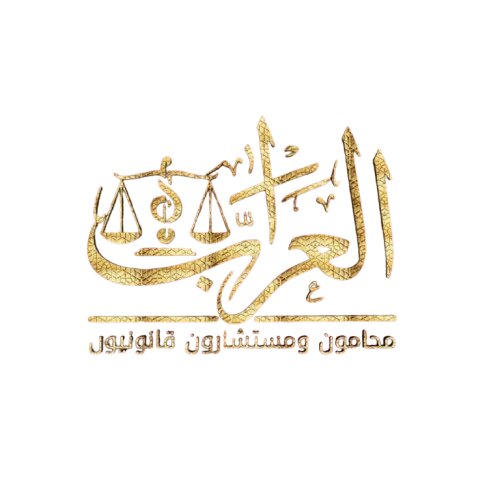Best Hiring & Firing Lawyers in Amman
Share your needs with us, get contacted by law firms.
Free. Takes 2 min.
List of the best lawyers in Amman, Hashemite Kingdom of Jordan
About Hiring & Firing Law in Amman, Hashemite Kingdom of Jordan
Hiring and firing laws in Amman, the capital of the Hashemite Kingdom of Jordan, are governed by the Jordanian Labor Law, which aims to regulate the relationship between employers and employees. These laws are designed to ensure fair treatment and protection of workers’ rights, while also providing guidelines for employers to manage their workforce effectively. The law encompasses aspects such as employment contracts, termination procedures, severance pay, and employee rights, making it crucial for both employers and employees to understand these regulations.
Why You May Need a Lawyer
Engaging a lawyer in matters related to hiring and firing can be essential for several reasons:
- Employment Contracts: Drafting or reviewing employment contracts to ensure they meet legal standards and protect your interests.- Terminations: Guidance on lawful termination procedures to avoid wrongful dismissal claims.- Dispute Resolution: Representing your interests in labor disputes, whether it’s an unfair dismissal claim or a breach of contract issue.- Understanding Compliance: Ensuring compliance with local labor laws to prevent legal penalties and maintain workplace harmony.- Severance Negotiations: Assisting in negotiating severance packages and understanding entitlements.- Discrimination or Harassment Issues: Legal support in cases involving allegations of workplace discrimination or harassment.In these situations, a lawyer’s expertise can provide clarity, protect your rights, and help navigate complex legal landscapes.
Local Laws Overview
The Jordanian Labor Law outlines several critical elements pertinent to hiring and firing:
- Employment Contracts: It is mandatory to have written employment contracts specifying terms of employment, duties, compensation, and duration.- Probationary Period: A maximum of three months for testing an employee’s suitability, during which termination can occur with a notice.- Notice Periods: Typically 30 days' notice is required for terminations, but this may vary depending on the contract.- Just Causes for Termination: These include significant misconduct or policy breaches that justify firing without notice.- Severance Pay: Employees may be entitled to severance pay calculated based on the duration of service.- Employee Rights: Includes protection against unjust termination, and provisions for fair work practices and conditions.- Discrimination and Harassment: The law prohibits discrimination based on gender, religion, or nationality, and mandates safeguarding employees against workplace harassment.
Frequently Asked Questions
What is the probationary period for new hires in Jordan?
The probationary period in Jordan is typically three months, allowing employers to terminate the employment within this period if the employee does not meet expectations.
Is a written employment contract required?
Yes, a written employment contract is required in Jordan, detailing the terms of employment, duties, and compensation.
What constitutes wrongful termination in Jordan?
Wrongful termination involves dismissing an employee without a legally justified reason, such as discrimination or lack of adherence to contractual terms.
How is severance pay calculated?
Severance pay is usually calculated based on the employee’s length of service and last drawn salary, typically accounting for one month’s salary for each year of service.
Are employers required to provide a reason for termination?
Yes, under the Jordanian labor law, employers must provide a reason for termination, especially if it’s due to misconduct or performance issues.
Can an employee challenge a termination?
Employees can challenge termination through labor courts if they believe it was unjust or not in compliance with the law.
What are the employee rights regarding work hours and overtime?
Normal working hours should not exceed 48 hours a week, with overtime compensated at a higher rate as stipulated by law.
What protections exist against workplace discrimination?
The law prohibits discrimination based on gender, religion, or nationality, ensuring fairness in hiring and firing practices.
How are contract disputes resolved?
Employment contract disputes are often resolved through negotiation, mediation, or in labor courts, depending on the situation.
What are an employer's obligations upon termination?
Employers are obligated to provide a termination notice, settle any dues including severance pay if applicable, and ensure all rights are fulfilled as per legal requirements.
Additional Resources
For more assistance on hiring and firing laws, consider reaching out to the following:
- Ministry of Labor: The official body overseeing labor practices in Jordan, providing resources and assistance.- Legal Aid Organizations: Non-profit organizations that may offer legal assistance and advice for workers.- Labor Law Attorneys: Professional legal advice can be sought from specialized attorneys in labor law to help with specific cases.- Chambers of Commerce: They can provide insights and resources related to employment practices for businesses.
Next Steps
If you need legal assistance in hiring and firing issues in Amman, consider the following steps:
1. Identify Your Needs: Clearly define what assistance is needed-contract review, dispute resolution, etc.2. Consult a Lawyer: Seek advice from a qualified legal professional experienced in Jordan’s labor laws.3. Gather Relevant Documents: Collect all employment-related documents that may be relevant to your case.4. Contact Local Authorities: For guidance or to file a complaint related to labor practices.5. Consider Mediation: As an alternative resolution method before pursued legal action.By taking these steps, you can better navigate your rights and obligations under Jordanian labor law.
Lawzana helps you find the best lawyers and law firms in Amman through a curated and pre-screened list of qualified legal professionals. Our platform offers rankings and detailed profiles of attorneys and law firms, allowing you to compare based on practice areas, including Hiring & Firing, experience, and client feedback.
Each profile includes a description of the firm's areas of practice, client reviews, team members and partners, year of establishment, spoken languages, office locations, contact information, social media presence, and any published articles or resources. Most firms on our platform speak English and are experienced in both local and international legal matters.
Get a quote from top-rated law firms in Amman, Hashemite Kingdom of Jordan — quickly, securely, and without unnecessary hassle.
Disclaimer:
The information provided on this page is for general informational purposes only and does not constitute legal advice. While we strive to ensure the accuracy and relevance of the content, legal information may change over time, and interpretations of the law can vary. You should always consult with a qualified legal professional for advice specific to your situation.
We disclaim all liability for actions taken or not taken based on the content of this page. If you believe any information is incorrect or outdated, please contact us, and we will review and update it where appropriate.
















